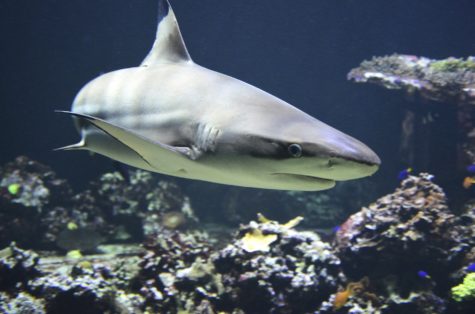EXETER, England — Could sharks hold the secret to longevity? The shockingly long lifespan of a certain type of shark may reveal clues about extending human life, a new study finds.
Researchers at the University of Exeter got their hands on small pieces of DNA from the Greenland shark, which are the longest-living vertebrates on Earth, in hopes of discovering their “unique genes.”
Nearly 100 Greenland sharks, some born in the mid-18th century, have now had their full mitochondrial genome sequenced by the researchers, allowing them to begin to understand what allows the shark to live for so long.
Fun fact: The Greenland shark is the longest-living known vertebrate, with one found to be over 400!https://t.co/dh3ztXIBla #WorldOceansDay pic.twitter.com/7DXycuFvSC
— The Nature Conservancy in Washington (@Conserve_WA) June 9, 2017
Considering how little is known about the genetics of Greenland sharks, this research is vital.
“The results we presented here in Exeter will help us understand more about the biology of this elusive species,” says Prof. Kim Praebel, the study’s lead researcher, in a university news release.
Ultimately, the secrets behind the longevity of this seemingly-immortal sea dweller may have implications for improvements in human lifespan.
For background, the Greenland shark, which is found in the Atlantic Ocean, is part of a family tree that reaches back 110 million years.
It is believed that the oldest shark examined by the researchers was nearly four centuries old at 392 years. The Greenland shark’s unheard of lifespan has allowed it to travel thousands of miles, a feat that was evident to the researchers in the wide dispersal of the species across the Atlantic.
“We still do not know where and how the Greenland shark reproduce, but the results we presented here in Exeter showed that the shark may prefer to mate in deep hidden fjords of the Arctic,” says Praebel.
Through examining the Greenland shark, the researchers believe they can also gain insight on the impacts of climate change, pollution, and overfishing over the previous decades and centuries.
Since there are so many potential benefits to studying the species, the researchers argue that conservation efforts must be taken seriously.
“The longest living vertebrate species on the planet has formed several populations in the Atlantic Ocean. This is important to know, so we can develop appropriate conservation actions for this important species,” says Praebel.
The study’s findings were presented at the Fisheries Society of the British Isles symposium in early July.

I’ve noticed that attorneys tend to be rather long-lived as well…